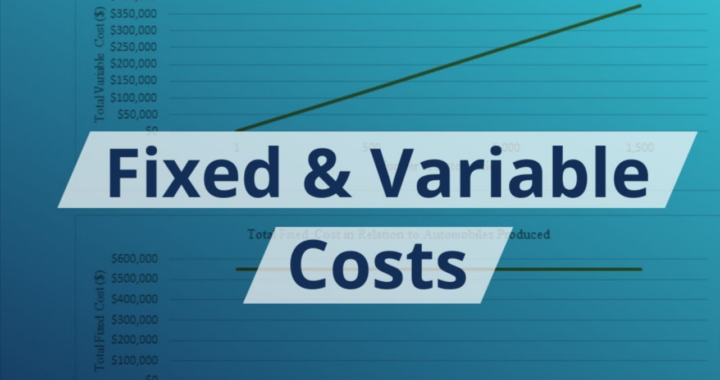Finance Lease : Master Your Financial Future

A finance lease is a type of lease whereby the lessee has all the risks and rewards associated with ownership of the leased asset. It is a popular financing option for businesses that need access to assets without the upfront costs of purchasing them outright.
In a finance lease, the lessee is responsible for the maintenance, insurance, and other costs related to the asset. At the end of the lease term, the lessee usually has the option to purchase the asset at a predetermined price.
This type of lease provides flexibility and allows businesses to access necessary assets while conserving their cash flow for other purposes. Finance leases are commonly used for equipment, machinery, vehicles, and other assets with a long useful life. They can be an attractive option for companies looking to acquire assets without the upfront investment, especially when the assets will be used for a significant period of time. Overall, a finance lease offers businesses the benefit of accessing necessary assets while spreading the cost over time and retaining the option to own the asset at the end of the lease term.

Credit: www.synario.com
What Is A Finance Lease?
A finance lease involves the leasing of an asset, typically for a longer duration and with the option to purchase at the end. It is a type of lease agreement where the lessee has the benefits and risks associated with owning the asset.
The key features of a finance lease include the transfer of ownership, long-term commitment, and fixed payments. Additionally, it differs from other lease types like operating lease and hire purchase. In an operating lease, the lessee doesn’t take ownership, while in a hire purchase, ownership transfers immediately.
Finance leases provide businesses with the flexibility of using assets without upfront costs and allow them to better manage their cash flow. The lessee can also enjoy tax benefits and claim depreciation expenses. With a finance lease, businesses can access the assets they need without the burden of ownership.
Understanding The Basics Of Finance Leases
Finance leases are an important aspect of business transactions. They involve financing the purchase of assets through a leasing agreement. Various types of assets can be financed through a lease, such as vehicles, machinery, and equipment. This enables businesses to acquire the necessary resources without incurring the full cost upfront.
Parties involved in a finance lease agreement typically include the lessor (the owner of the asset) and the lessee (the party acquiring the asset). Terms of the lease, including repayment options, are agreed upon by both parties. This allows flexibility in managing cash flow and preserving working capital.
Finance leases are a popular choice among businesses looking to acquire assets without the need for significant upfront investments. They provide a viable alternative to traditional loan financing, enabling businesses to focus on their core operations and growth strategies.
Pros And Cons Of Finance Leasing
Finance leasing offers several advantages, starting with lower upfront costs and preserved capital. It also provides tax benefits and boosts cash flow. Furthermore, finance leasing offers flexibility and allows for upgrades. However, there are also disadvantages to consider. One major drawback is the long-term financial commitment.
Additionally, there is potential for higher overall costs, and limited control over the asset. Despite these drawbacks, finance leasing can be an attractive option for businesses looking to conserve capital and maintain financial flexibility. By carefully weighing the pros and cons, businesses can make informed decisions about whether finance leasing is the right choice for their specific needs.
Assessing Your Financial Needs And Goals
Assess your financial needs and goals based on evaluating your budget and financial capabilities. Identify the right assets for finance leasing as per your specific requirements. Set realistic goals for growth and profitability to ensure successful financial management. By carefully assessing your financial capabilities and goals, you can make informed decisions about the assets to lease through finance.
This will enable you to optimize your budget and achieve your desired level of growth and profitability. It is crucial to prioritize your needs and align them with your overall financial strategy. This approach will help you make the most efficient use of finance leasing to meet your business objectives.
Understanding your financial needs is the first step towards creating a solid foundation for successful finance leasing.
Choosing The Right Lender And Lease Structure
Finance lease is an important decision for businesses. Researching and comparing finance lease providers is crucial. Understanding lease terms and conditions is necessary to make an informed choice. Customizing the lease structure to fit your business needs is essential. By choosing the right lender and lease structure, businesses can ensure a favorable agreement that suits their requirements.
It is important to carefully consider the terms, interest rates, and repayment options offered by different lenders. By doing thorough research and comparisons, businesses can find the best finance lease provider that offers flexible terms and competitive rates. This will enable them to acquire the necessary equipment or assets without putting an undue strain on their finances.
So, take the time to evaluate different options and make an informed decision that aligns with your business goals.
Managing Your Finance Lease Effectively
Managing your finance lease effectively requires creating a comprehensive plan that includes tracking and monitoring lease payments and obligations. Remaining proactive in lease renewal or termination is crucial to avoid any financial setbacks. By carefully managing your finance lease, you can ensure that you stay on top of your financial commitments and make informed decisions about the future of your lease.
With a proactive approach, you can address any potential issues early on and avoid any surprises down the line. By taking control of your finance lease, you can effectively manage your finances and maximize the benefits of your lease arrangement.
Finance Leasing In Real Estate Development
Finance leasing is an effective tool in real estate development, providing support for property acquisitions. This is evident in a successful case study of a real estate project that was financed through leasing. The key takeaways from this case study highlight the advantages of finance leasing in the industry.
Lessons learned include the flexibility of this financing option and its ability to free up capital for other investments. Additionally, finance leasing allows businesses to access high-value assets without the need for substantial upfront costs. It also provides tax benefits and preserves cash flow, making it an attractive choice for real estate developers.
Overall, finance leasing plays a crucial role in driving growth and development in the real estate industry.
Finance Leasing In Equipment Acquisition
Finance leasing is an effective method for businesses to acquire necessary equipment. By opting for leasing, companies can enjoy multiple advantages. For instance, it enables them to conserve cash flow and allocate resources more efficiently. Additionally, leasing equipment provides flexibility, allowing businesses to upgrade as technology advances.
It also eliminates the need for upfront large capital investments. A case study showcasing one company’s success in financing equipment through leasing further highlights the feasibility of this approach. Furthermore, finance leasing contributes to enhancing operational efficiency, as it minimizes downtime and ensures access to cutting-edge equipment.
These key insights demonstrate the value of considering finance lease options for equipment acquisition, enabling businesses to optimize performance and stay competitive in the market.
Finance Leasing For Technology Upgrades
Finance leasing is a valuable strategy for technology upgrades, especially in the fiercely competitive tech industry. An intriguing case study showcases a company’s smart move to lease, resulting in improved productivity and gaining an edge over rivals. By leveraging finance leases, businesses can acquire the latest tech advancements without the burden of high upfront costs.
This approach ensures that companies stay up to date with the rapidly evolving technology landscape, enabling them to remain competitive. With finance leasing, organizations can easily adapt to changing market trends while optimizing their financial resources. This proactive approach facilitates growth and flexibility, ultimately leading to enhanced operational efficiency and increased profitability.
In summary, finance leasing is an invaluable tool for businesses seeking to upgrade their technology infrastructure and stay ahead in the technological race.
Conclusion
Finance lease is a popular option for businesses looking to acquire assets without the burden of ownership. It offers flexibility, cost-effectiveness, and improved cash flow management. With a finance lease, businesses can access high-value assets without hefty upfront costs, allowing them to allocate resources to other essential areas of their operations.
By spreading payments over the lease term, businesses are better able to manage their finances and maintain stability. This type of lease provides businesses with the opportunity to upgrade to newer, more advanced equipment as technology evolves, ensuring they stay competitive in their industries.
It’s important for businesses to carefully consider their needs and objectives before entering into a finance lease agreement, as it is a long-term commitment. Overall, finance lease is a viable option for businesses seeking growth, flexibility, and a means to optimize their finances.
 How to Prepare Your CPA Firm for a Successful Exit: A Step-by-Step Guide
How to Prepare Your CPA Firm for a Successful Exit: A Step-by-Step Guide  How Fixed and Variable Costs Impact Your Stock Trading
How Fixed and Variable Costs Impact Your Stock Trading  Finance Loan : Unlock Your Financial Freedom Today
Finance Loan : Unlock Your Financial Freedom Today  Leveraged and Inverse ETFs: Strategies for Volatile Markets
Leveraged and Inverse ETFs: Strategies for Volatile Markets  Hallmark Insurance Downgrade: Protect Your Investments Now!
Hallmark Insurance Downgrade: Protect Your Investments Now!